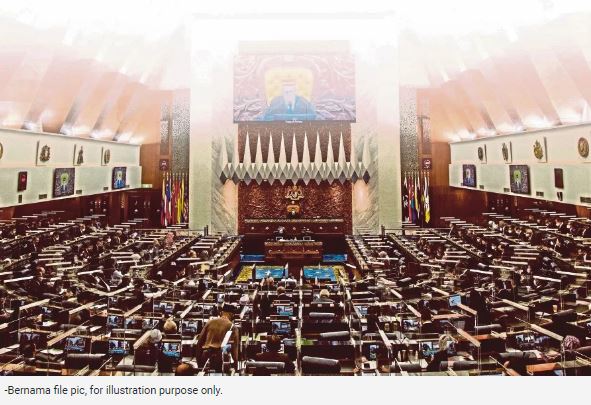Demonising one another will get us nowhere
Emeritus Professor Tan Sri Dato' Dzulkifli Abdul Razak
Opinion - New Straits Times
September 28, 2022
When someone alleges that a government has failed, regardless of how it is characterised, it implies that all those associated with the government have also failed.
Or, at least, contributed to the failure. This includes those who were appointed by the "failed" government, especially those at the higher offices in the hierarchy, close to the sources of power.
None of them could stand apart and not take any accountability, though they prefer to point fingers at the rest who have benefited (or otherwise) from the advice offered when willingly serving the government of the day.
To disown the collective wrongdoing is downright irresponsible, to say the least, more so if the assertion is coloured by some racist-like or biased remarks, whether intentional or not.
After all, the aim was to seek a solution to an uncertain future that Malaysia seems to be facing, rather than leading to more misunderstanding directed at the next election, which is expected to be around the corner.
Such statements have caused a lot of anxiety, given the apparent slant.
For example, it was also reportedly claimed that the reason the then prime minister had resigned was due to the impression that his government was not "Malay enough".
This has been challenged as too simplistic if not mischievous when it urged "the opposition must make that an issue".
Fortunately, not all bought it lock, stock and barrel.
All is not lost when a commentator gave a commendable analysis that was remarkably different in content and tenor.
Issues were raised without any racist overtones or causing unnecessary anxieties on the part of those involved.
No clichés or stereotypes were used in putting the case forward. The intention to use the platform for an open and sincere dialogue was apparent and well appreciated.
For example, instead of assigning blame freely, "Malaysians and political leaders were urged to take a hard look at themselves when discussing racial problems". Not merely to demonise "the other side", as always has been the case.
According to political analyst Dr Michael Jeyakumar Devaraj, "60 years of race-based politics had left all Malaysians with 'dark forces' within themselves".
He questioned: "But do we imagine that only the Malay population has these dark forces?", adding, "What about the non-Malays?"
These are indeed refreshing thoughts that have been boggling the minds of many, but no one has the inclination to raise them openly for reasons best known to themselves.
Books have been written and launched by authors and academics who are themselves known to be tainted by racism going back to the writer's student days.
But cleverly disguised as a human rights concern, so to speak. Nevertheless, as Jeyakumar boldly states: "Racial disparity ran across the board and was not confined to any one community."
The case in point is when "small- and medium-sized enterprises (SMEs) made up about 60 per cent of employment in Malaysia", yet, as he singled it out, "around 90 per cent of industrial SMEs were owned by Malaysian Chinese".
Given that SMEs account for roughly 40 per cent of GDP "but are almost entirely Chinese", he stated unequivocally, it put to shame some of the holier-than-thou attitudes and views that have gone by without much introspection.
Thus, the way forward, as rightly suggested, is for "self-reflection" to allow for some "appreciation of what had been" and being critical of what has gone wrong.
There is a need to empathise and be matured politically without demonising one another.
The latter is childlike and appeals to the unthinking, which has coloured much of the realpolitik of the day!

